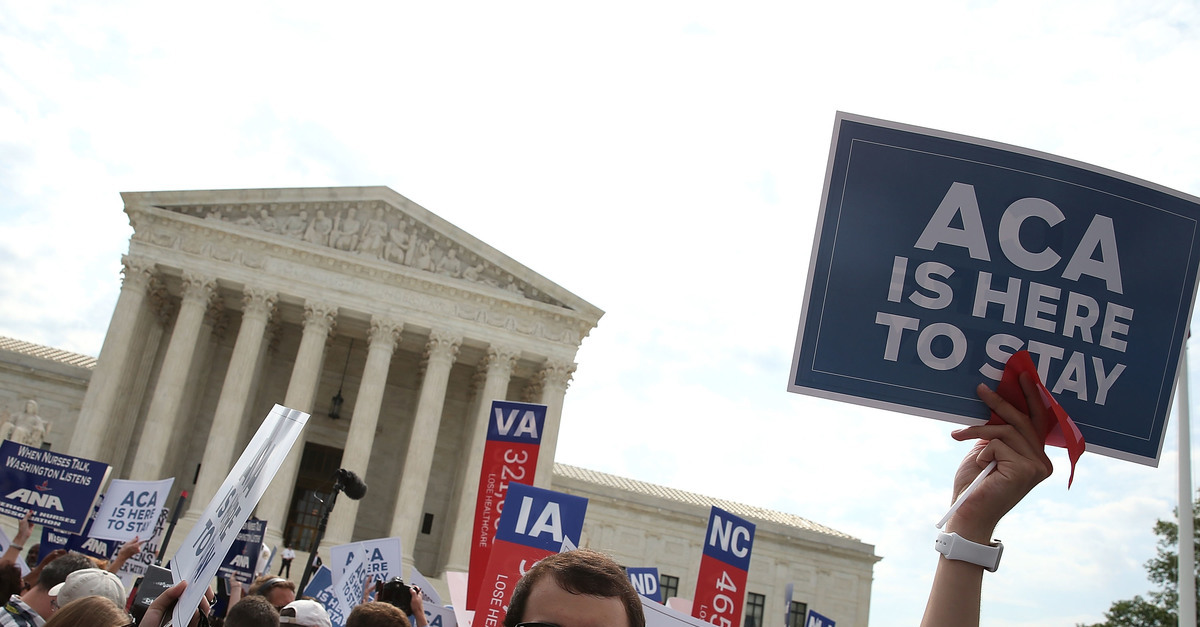
The Supreme Court of the United States will be holding another round of live streamed telephonic oral arguments on Wednesday. This time, the court will consider a controversial section of the Affordable Care Act (ACA) in Little Sisters of the Poor Saints Peter and Paul Home v. Pennsylvania and Trump v. Pennsylvania. The Court will be considering whether employers should be able to “opt out” of Obamacare’s requirement that they provide health insurance with contraceptive coverage when those employers have a moral or religious objection to providing that coverage.
The ACA’s Contraceptive Mandate
The ACA’s contraceptive mandate was already challenged in the 2014 case Burwell v. Hobby Lobby; in that case, SCOTUS ruled that a closely held corporation owned by a religiously devout family could opt out of the ACA’s requirement. The current case questions the Trump administration’s effort to further circumvent the ACA’s mandate by creating a rule of its own.
The Trump administration effectively opened the exemption upheld in Hobby Lobby even wider. Under the Trump rule, private employers with “sincerely held religious or moral objections” can opt out of providing coverage for contraception. That’s an expansion of both who can exempt themselves from the federal law, as well as what grounds on which they can seek exemption. Not all private employers are closely-held corporations, and not all moral beliefs are grounded in religion; accordingly, the Little Sisters case has the potential to bring the Hobby Lobby rule to the masses.
The Current Litigation
New Jersey and Pennsylvania initiated separate lawsuits (which have been consolidated for Wednesday’s SCOTUS arguments) challenging the Trump Administration’s new rules on a variety of grounds. Little Sisters of the Poor is a group of nuns who operate in about 30 countries, running nursing and retirement homes for the elderly. They argue that the ACA’s contraceptive mandate infringes on their religious freedom by requiring them to pay for something that violates church rules. SCOTUS allowed Little Sisters of the Poor to “intervene” in the case, thereby raising them to the same status as the original litigants.
The petitioners in the case are challenging the opt-out rule on a number of grounds. They argue not only that the content of the rule is improper, but that the way the rule was adopted was procedurally defective. Federal administrative rules are required to go through what is known as a notice-and-comment period before they take effect, and the Trump administration appears to have failed to comply.
The Trump administration argues that under the federal Religious Freedom Restoration Act (RFRA), private employers are protected the ACA’s contraception mandate as part of RFRA’s guarantee of religious freedom. For additional background on RFRA, see here.
What Happened in the Lower Court
The United States Court of Appeals sided against the Trump administration and upheld a preliminary nationwide injunction that stopped new rule on exemptions from going into effect. In that ruling, the Third Circuit held that the administration had gone too far in allowing a religious exemption to federal law; it also held that the rule was improperly adopted and thereby violated the Administrative Procedure Act.
The Legacy of Hobby Lobby
The Supreme Court’s 5-4 decision in Hobby Lobby was highly controversial. The case marked the first time that a corporation was legally recognized to have “religious beliefs.” The decision itself, though, was relatively narrow, and applied only to closely-held corporations and only to the ACA’s contraceptive mandate. Although the SCOTUS could decide Little Sisters on a variety of grounds, the case has potential to widen the scope of business’ rights to claim religious freedom as the ground for avoiding compliance with federal law.
What’s Different, What’s the Same?
The majority decision in Hobby Lobby was penned by Justice Samuel Alito and joined by Chief Justice John Roberts and Justices Antonin Scalia, Anthony Kennedy, and Clarence Thomas. Justice Ruth Bader Ginsburg wrote the main dissent, and was joined by Justices Sonia Sotomayor, Stephen Breyer, and Elena Kagan.
Justice Kennedy, known for being the Court’s “swing vote” sided with the majority, but wrote his own concurrence that emphasized that the decision was a very, very narrow one.
2020’s bench is minus one Scalia and Kennedy, plus one Brett Kavanaugh and Neil Gorsuch. On issues of religious freedom, losing Scalia and adding Kavanaugh is likely to amount to a zero sum difference. But it’s a little different if we’re talking about Anthony Kennedy. Neil Gorsuch was Kennedy’s clerk, and was also on the appellate court that presided over Hobby Lobby before it landed at the Supreme Court. In that case, Gorsuch said that the ACA’s contraception mandate was a burden on religious exercise and violated RFRA.
What’s Next?
Although different underlying statutes are directly relevant, Little Sisters is also related to the trend in the Masterpiece Cakeshop litigation. That case also raised the issue of whether a business is entitled to religious freedom such that it has the right to opt out of laws.
The Law&Crime Network will be streaming SCOTUS’s oral arguments in Little Sisters of the Poor Saints Peter and Paul Home v. Pennsylvania and Trump v. Pennsylvania starting at 10:00 a.m. on Wednesday, May 6. After that, renowned attorney Gloria Allred and Kristen Waggoner, an attorney with the religious liberty group the Alliance Defending Freedom, will join host Brian Ross to discuss the arguments.
[Image via Mark Wilson/Getty Images]
Editor’s Note: This piece was updated for purposes of clarification.